FORT RILEY, Kan. - As Sgt. 1st Class Bill Flippo, his wife, Char, and the couple's three sons, Shawn, 8, Nathan, 7, and Hunter, 2, waited for Flippo's friend, Master Sgt. Kenneth Reynold's redeployment ceremony to start, Flippo reminisced about how he and Reynolds met.
The two Soldiers met in 1999 when they were stationed with the 3rd Battalion, 325th Airborne Infantry Regiment, 2nd Brigade, 82nd Airborne Division, out of Fort Bragg, N.C. They deployed together to Iraq in support of Operation Iraqi Freedom in 2003.
In 2007, Flippo was assigned to the 1st Brigade, 1st Infantry Division, at Fort Riley, which trained military transition teams. Ironically, two years later, Reynolds was chosen to be an adviser on a transition team with Class 78 at Fort Riley.
After spending nearly a year on a transition team in Afghanistan, Reynolds was coming home, and his long-time friend, Flippo, was there waiting to welcome him back.
Reynolds was one of more than 40 transition team members with Class 78 welcomed back to Fort Riley during an Oct. 4 redeployment ceremony in Building 1986, Camp Funston. Class 78 was the last transition team class to train at Fort Riley
"We hadn't seen each other for about four years until I came here (to train for the transition team mission). It will be great to catch up on old times," Flippo said.
Also waiting on the bleachers for the ceremony to begin was Myong Gries of Fort Leavenworth, Kan. Gries and her two children, Erich, 10, and Anna, 7, were waiting for her husband and the children's father, Maj. Shane Gries' return.
Gries said the first thing she was going to do when she saw her husband was give him a big hug.
"I want him just to relax, and then we will probably take a trip somewhere," Gries said.
While her husband was deployed, Gries said she and her children kept busy attending Army Community Service programs for Families of deployed Soldiers.
"I can control it, but the kids missed their father too much," she said.
Brig. Gen. David Petersen, 1st Inf. Div. deputy commanding general-rear, welcomed the Soldiers home and congratulated them for the "great job they've done during this past year in Afghanistan."
While deployed, the Soldiers trained Afghan national security forces in the areas of operation, personnel, intelligence, force protection, logistics and a variety of garrison support activities. The teams also provided a critical link between the Afghan national security forces and the coalition forces.
"It's one of those things, if they write the book about it, we'll know that's how we actually won this war," Petersen said of the MiTT's mission in Afghanistan.
"Oh my goodness - amazing," were the first words that came out of Ruthann Allesch' mouth when asked how she felt about having her husband, Sgt. 1st Class Stephen Allesch home.
The couple's children, Timothy, 11, and Faith, 5, ran to greet their father with a hug as soon as the words "dismissed" rang through the building.
Another Family eagerly awaiting their loved one's arrival was Elizabeth Whirley of Austin, Texas, and her son, Eli, 17 months. She came to Fort Riley to welcome home her husband, Capt. Hunter Whirley. Elizabeth Whirley is pregnant with the couple's second child.
Hunter Whirley said the team's mission in Afghanistan started as advising battalions and above for the Afghan National Army. The teams later transitioned over to observation coordination centers.
One of the biggest challenges for the team in Afghanistan was the cultural aspects of dealing with people on a day-to-day basis, Hunter said.
"Basic language skills will get you a foot in the door - it's just being able to try to accommodate the culture. In the end, it's you building a rapport with whoever you are working with. It was challenging at times - it was frustrating, but also we came away learning a lot more," he said.
Hunter Whirley described Class 78 as being an extremely tight-knit group.
"Our teams were extremely tight because we only had 42 men, but we were broken out across the country, so we had six- and seven-man teams. With those kinds of teams, you became very close with all of those around you," he said.
One of the low points of the deployment, Hunter Whirley said, was when Sgt. 1st Class Glen "Jacob" Whetten was killed and two other Soldiers from the class were injured.
"That was the low point," he said. "We all miss him. We all know that could happen, but you remember them fondly. You just pull together and keep going. It's the only choice you have. Jake was one of the best and it was a shame to lose him."
Now that he is back in the U.S., Hunter Whirley said he is looking forward to going into the Captain's Career Course in Georgia and looking forward to "hanging out with these three," as he pointed to his pregnant wife and the couple's son.
Class 78 was the last transition team class to train at Fort Riley before the transition team training mission was transferred to Fort Polk, La., in September 2009. In that same month, 1st Brigade remissioned to the 1st Heavy Brigade Combat Team.
Fort Riley trained transition teams from 2006 to September 2009. The teams, consisting of 10 to 16-man teams of Army, Navy and Air Force personnel, were trained for 60 days at Fort Riley with the primary mission of advising and mentoring Iraq and Afghanistan security forces in the areas of intelligence, communications, fire support, logistics and infantry tactics in support of the Global War on Terrorism.
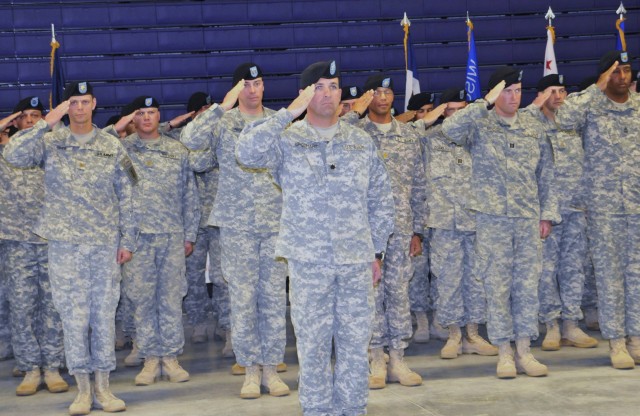
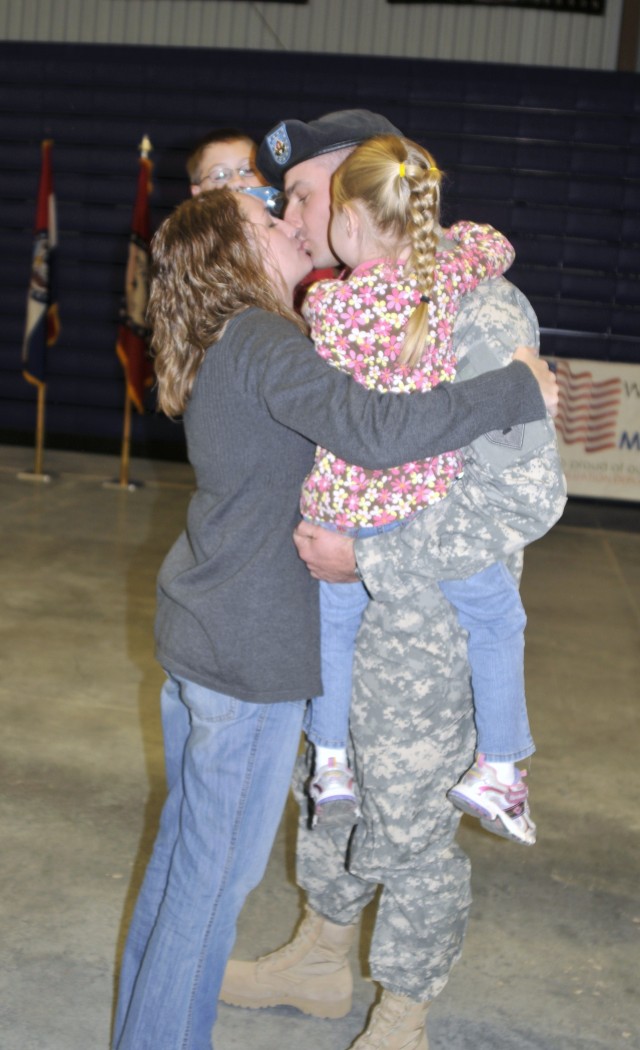
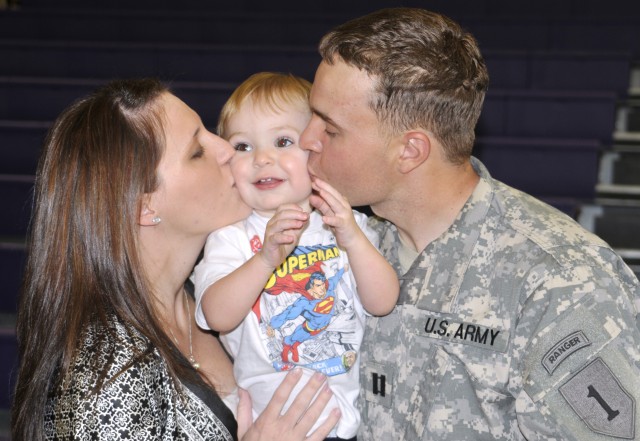
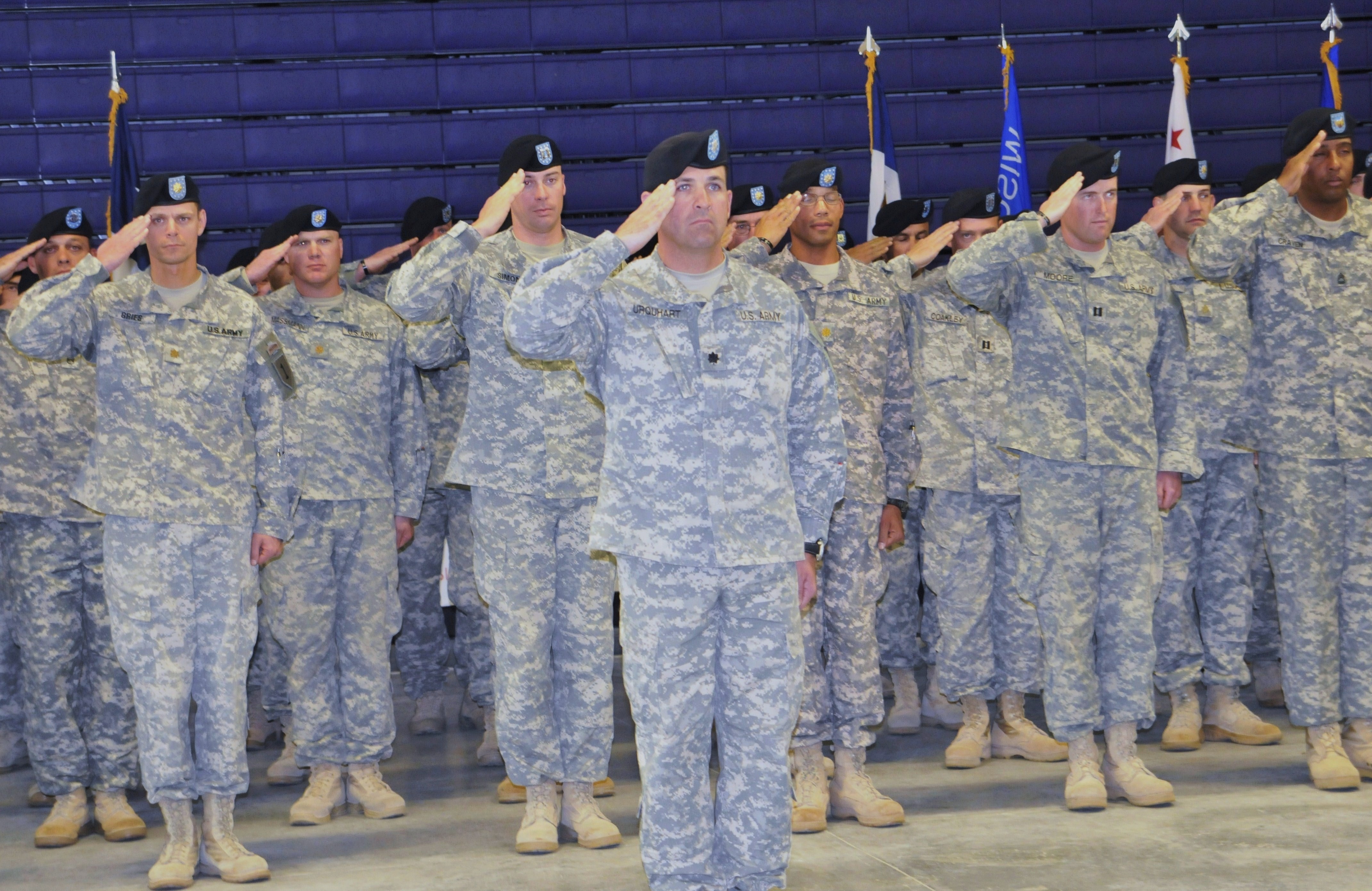
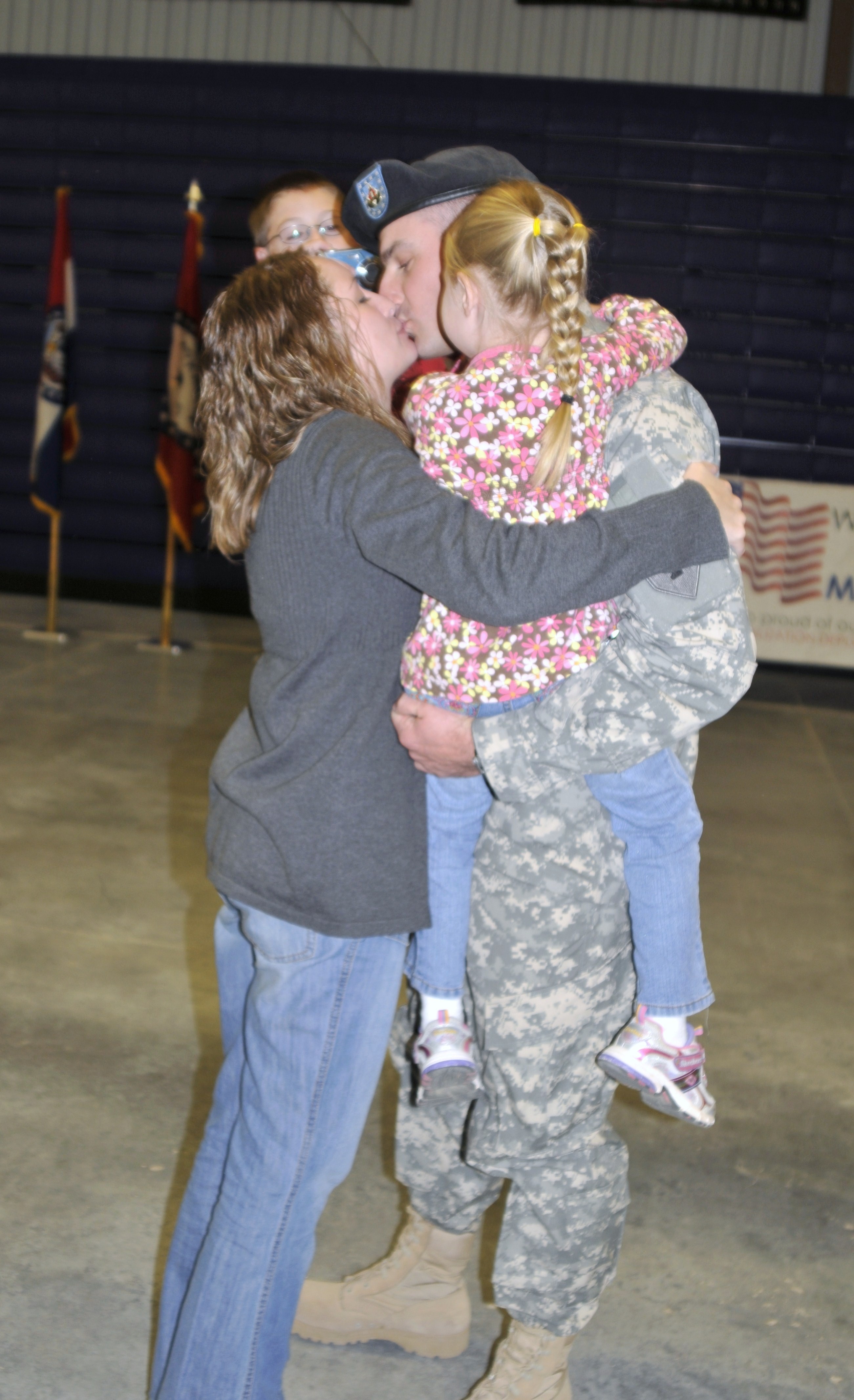
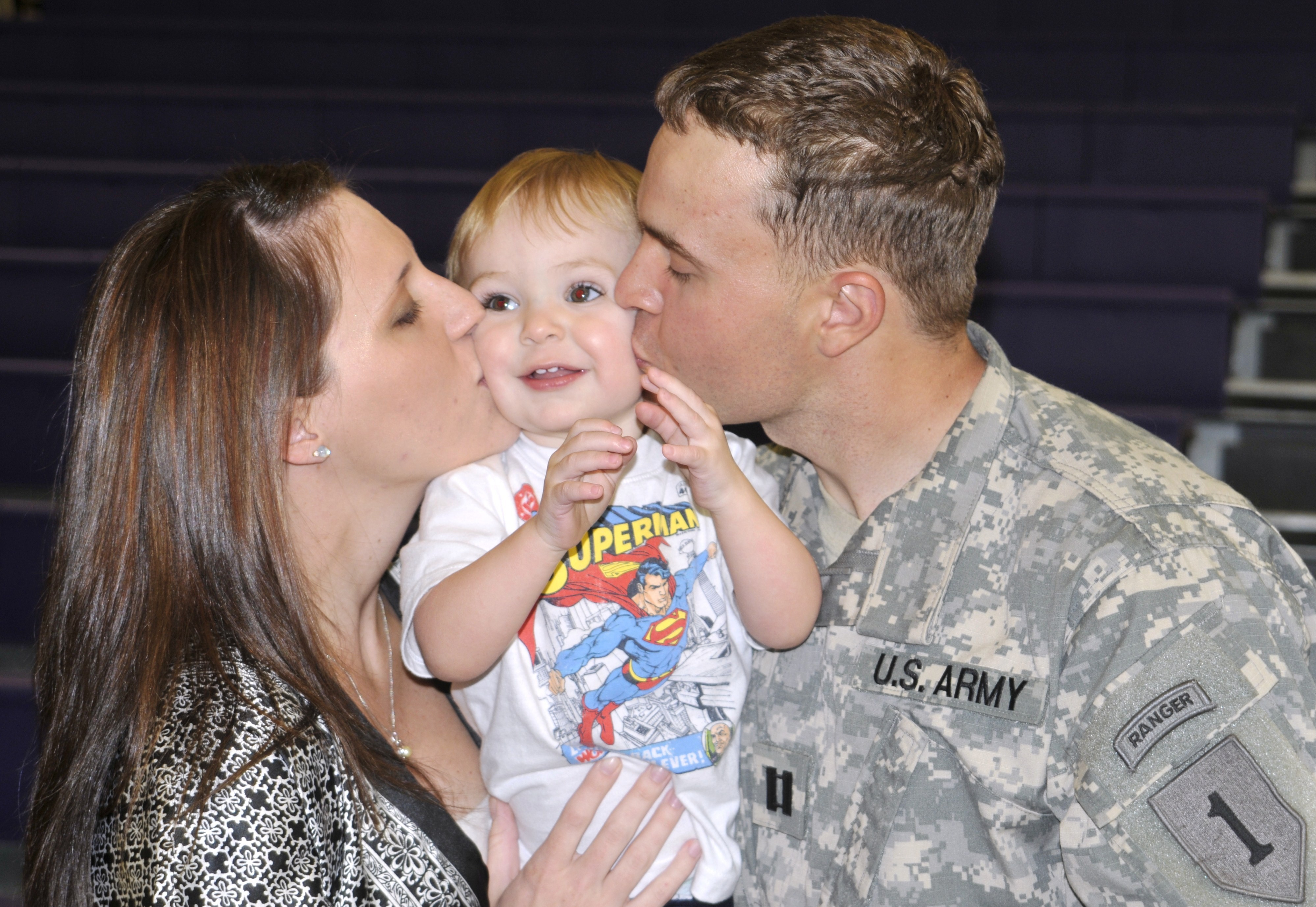
Social Sharing